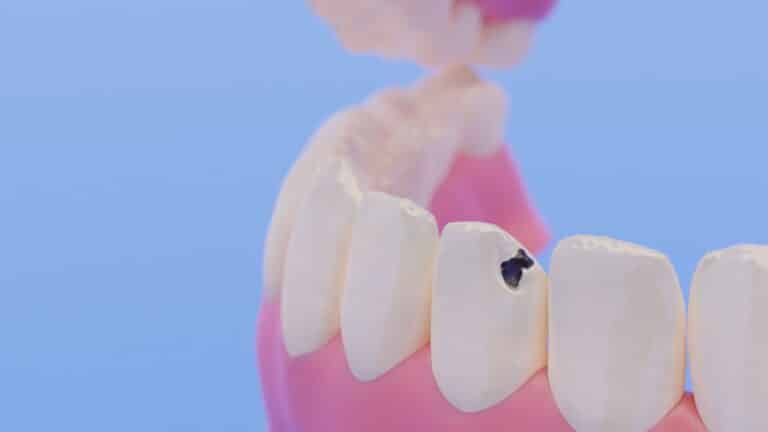A cavity, also called tooth decay is caused by many different factors. Cavities are especially common in children, teenagers, and older adults but anyone who has teeth can get cavities, including infants!
What are the symptoms?
Symptoms of cavities can vary. When a cavity is just beginning, you may not have any symptoms at all. As the decay gets larger, it may cause signs and symptoms such as:
- Tooth sensitivity
- Pain when you bite down
- Mild to sharp pain when eating or drinking something sweet, hot or cold
- Visible holes or pits in your teeth
- Toothache, spontaneous pain, or pain that occurs without any apparent cause
- Brown, black or white staining on any surface of a tooth
When should you see a dentist?
You may not even be aware that a cavity is forming. If cavities aren’t treated, they get larger and affect deeper layers of your teeth. They can lead to a severe toothache, infection, and tooth loss.
Regular dental visits and good brushing and flossing habits are your best protection against cavities and tooth decay. However, if you experience a toothache or mouth pain, see your dentist as soon as possible.
Treatment options:
Treatment of cavities depends on how severe they are and your particular situation. Treatment options include:
- Fillings: Fillings, also called restorations, are the main treatment option when decay has progressed beyond the earliest stage.
- Crowns: For extensive decay or weakened teeth, you may need a crown — a custom-fitted covering that replaces your tooth’s entire natural crown.
- Root canals: When decay reaches the inner material of your tooth, you may need a root canal. This is a treatment to repair and save a badly damaged or infected tooth instead of removing it.
- Tooth extractions: Some teeth become so severely decayed that they can’t be restored and must be removed. Having a tooth pulled can leave a gap that allows your other teeth to shift. If possible, consider getting a bridge or a dental implant to replace the missing tooth.
Prevention
Good oral and dental hygiene can help you avoid cavities. Here are some tips to help prevent cavities:
- Brush with fluoride toothpaste
- Visit your dentist regularly
- Consider dental sealants
- Avoid frequent snacking and sipping
Visit Fox Dental regularly to prevent cavities! Contact us today to schedule your next appointment.





